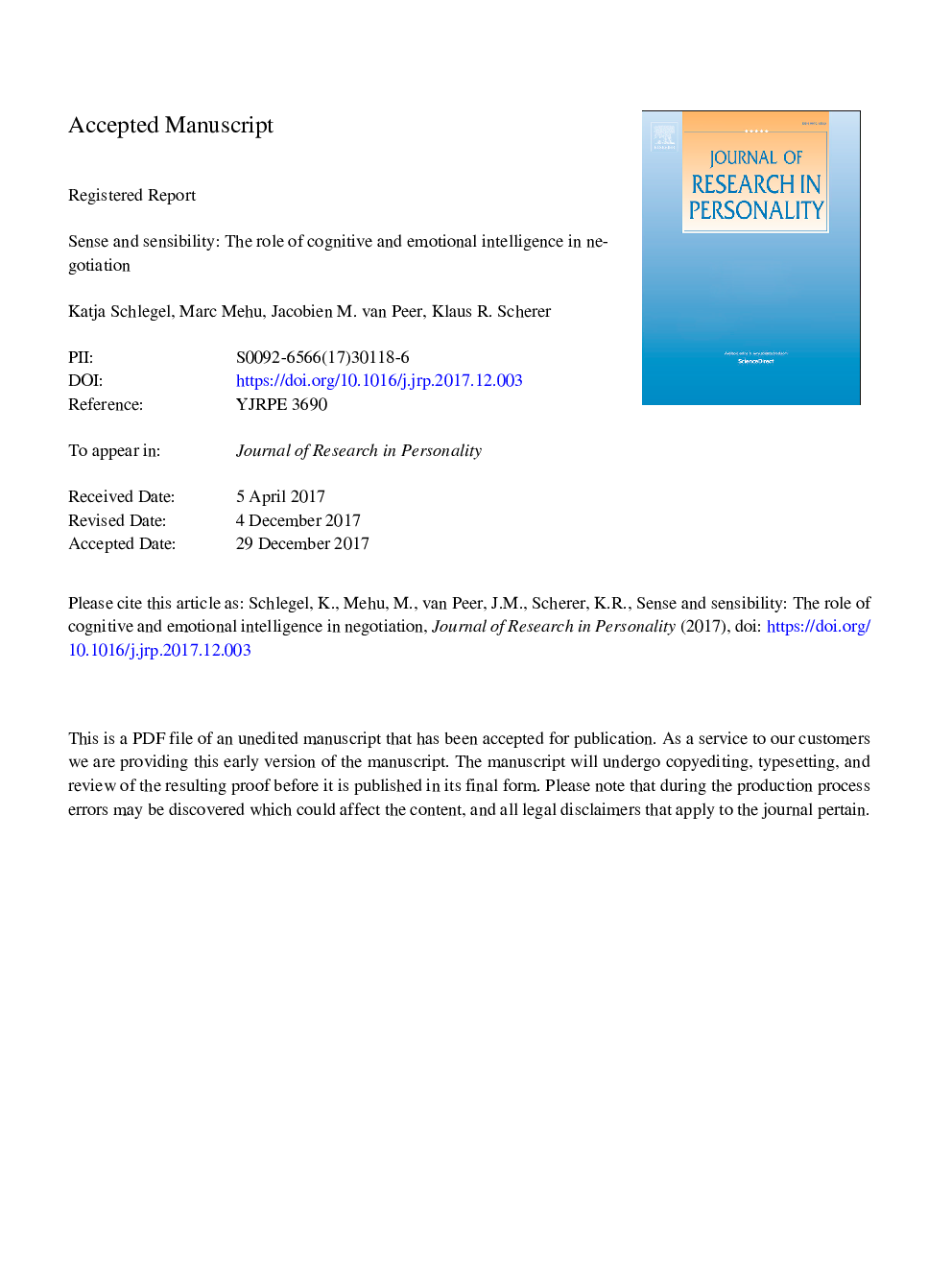| Article ID | Journal | Published Year | Pages | File Type |
|---|---|---|---|---|
| 7326315 | Journal of Research in Personality | 2018 | 35 Pages |
Abstract
This study tested whether EI (conceptualized as a performance-based ability) predicted economic and relational outcomes in an employee-recruiter negotiation above general mental ability (GMA) and whether a novel measure of emotion recognition ability (ERA; a central component of EI) predicted these outcomes better than an established broad ability EI test. Results showed that GMA was unrelated to negotiation outcomes. Higher scores on the ERA test and the emotional understanding subtest of the broad EI measure were associated with higher dyadic gains and higher individual gains for participants' counterparts. Negotiators with high ERA were also perceived as more cooperative and likable and showed higher self-ratings of cooperativeness. Overall, the ERA test predicted outcomes more consistently than the broad ability EI test.
Related Topics
Life Sciences
Neuroscience
Behavioral Neuroscience
Authors
Katja Schlegel, Marc Mehu, Jacobien M. van Peer, Klaus R. Scherer,
